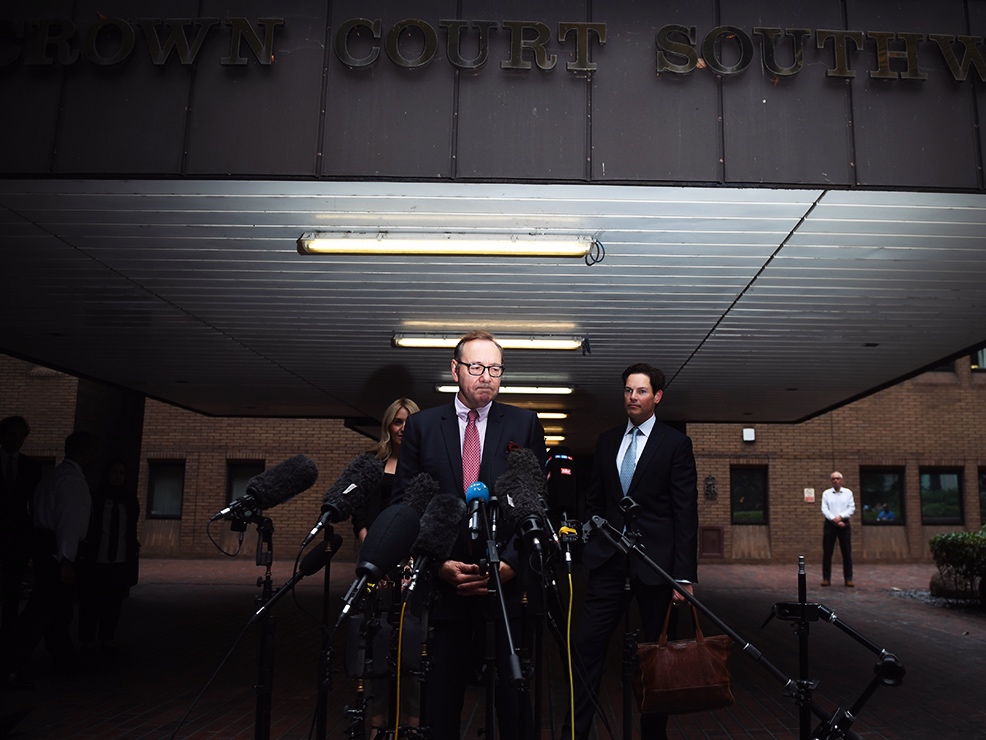
For a month in Court 1, Southwark, facing nine criminal charges relating to his sex life, Kevin Spacey was required to be sincere. It was like watching a vivisection. He took no pleasure in it, I think, but he is hard-working and muscular, and he approached it like a job. Before he gave testimony on 13 July, I watched him stand in a glass box between the judge’s bench and the public gallery and stretch. He rolled his head from side to side. He swung his arms. His hair was unkempt, and he looked aged. When I passed him in a corridor, chaperoned by the court manager, he was invisible until he loomed; until he wanted – no, allowed – me to see him. The box was unlocked by a male court official. To thank him, Spacey did a finger gun in his direction, like his character Jack Vincennes in LA Confidential, the cop who wanted to be a TV star and lost his soul trying. (“Why did you become a cop?” “I don’t remember.”) The court officer loved it: Spacey played a cameo in his life. On Wednesday 26 July he was found not guilty of all the charges.
From 2003 Spacey was the artistic director of the Old Vic. He is self-consciously a man of The Theatre, an invention within an invention, like Addison DeWitt in All About Eve. But he is most famous for film noir. The Usual Suspects, which made him famous on its release in 1995, is a direct quote from Casablanca – they are all the useless villains – and American Beauty (1999), his most plausible attempt at sincerity – at tenderness – was, like the 1950 film Sunset Boulevard, narrated by a corpse (played by Spacey). Film noir is the art-form of deception, and he had a gallery of tricksters – Hollywood Jack in LA Confidential, Verbal Kint in The Usual Suspects, House of Cards’s Frank Underwood, Se7en’s John Doe. He inhabited them with all the hunger of desire: they are suave (except Doe, who is blood-spattered) and certain of themselves. He made a different man with his talent.



